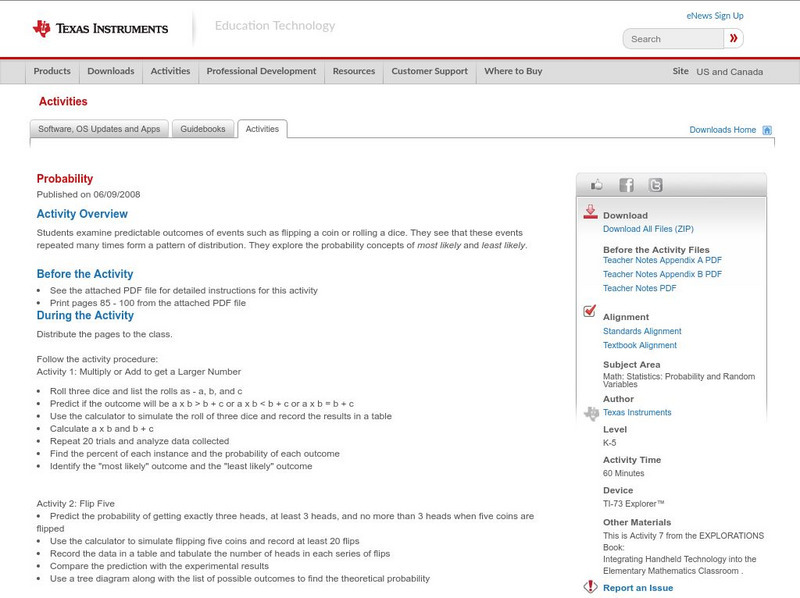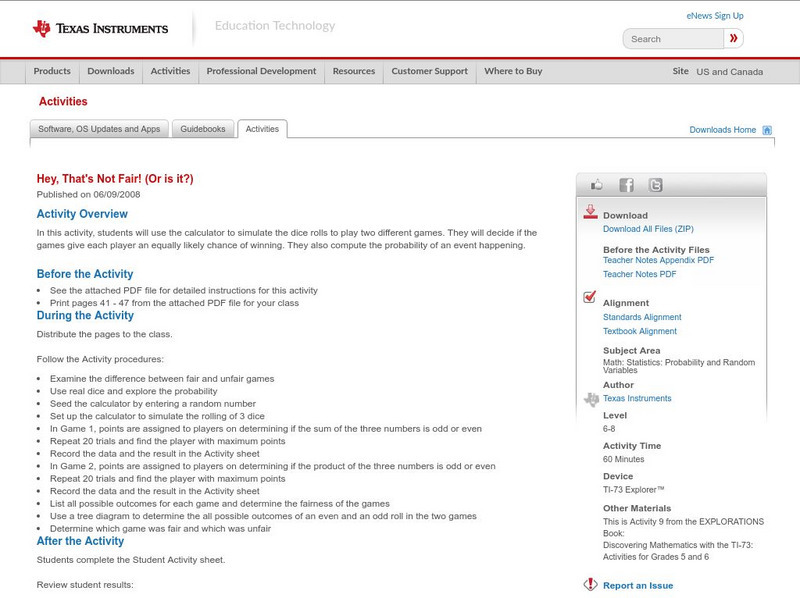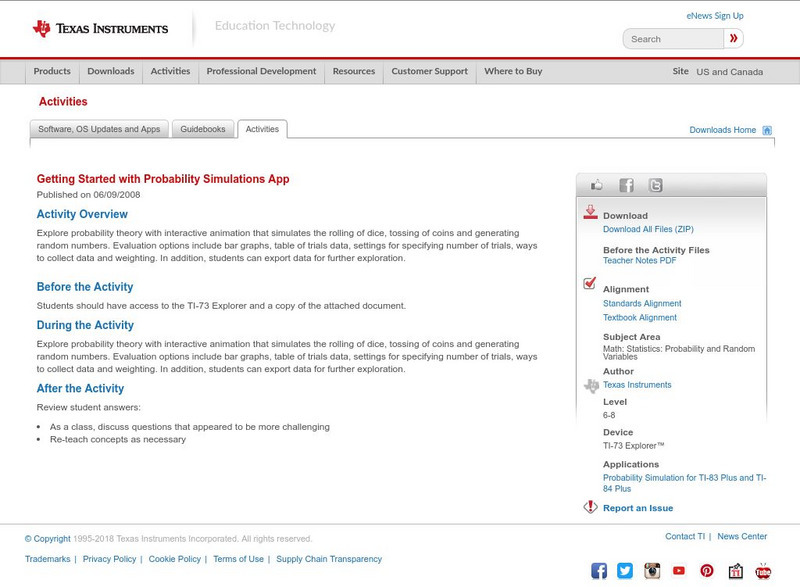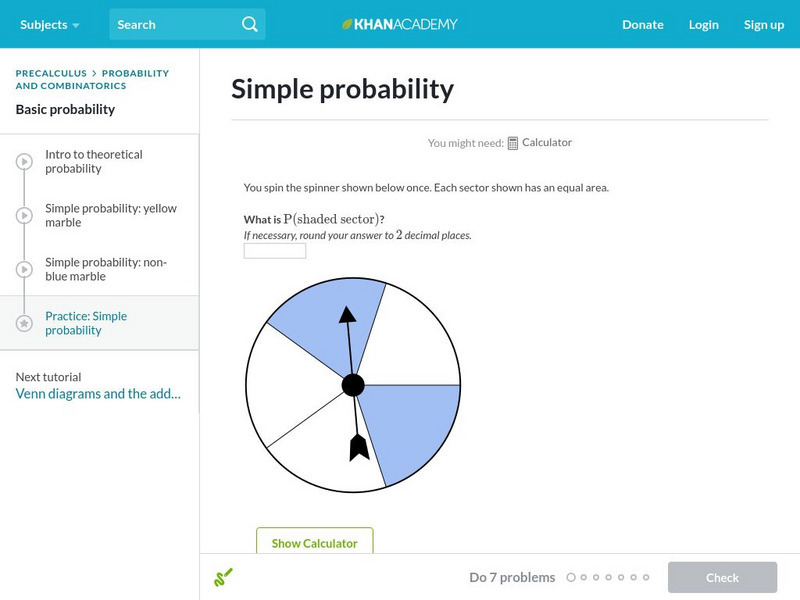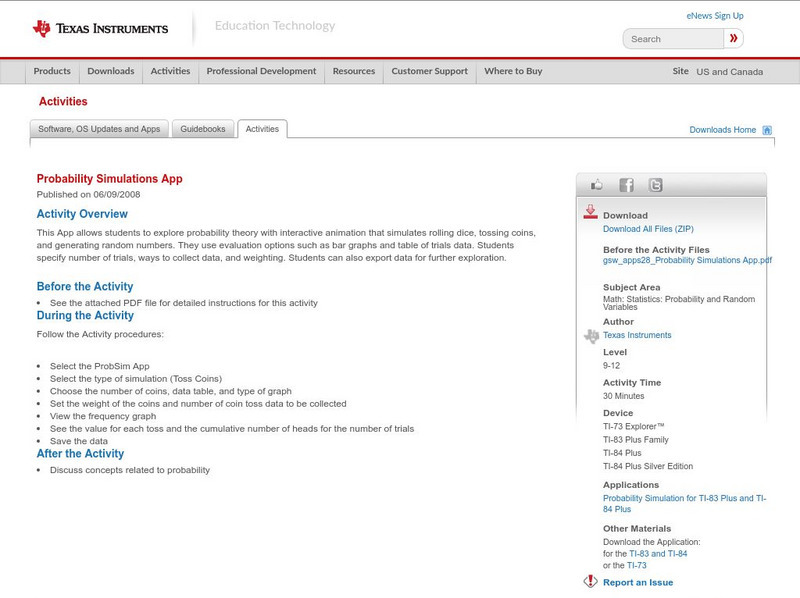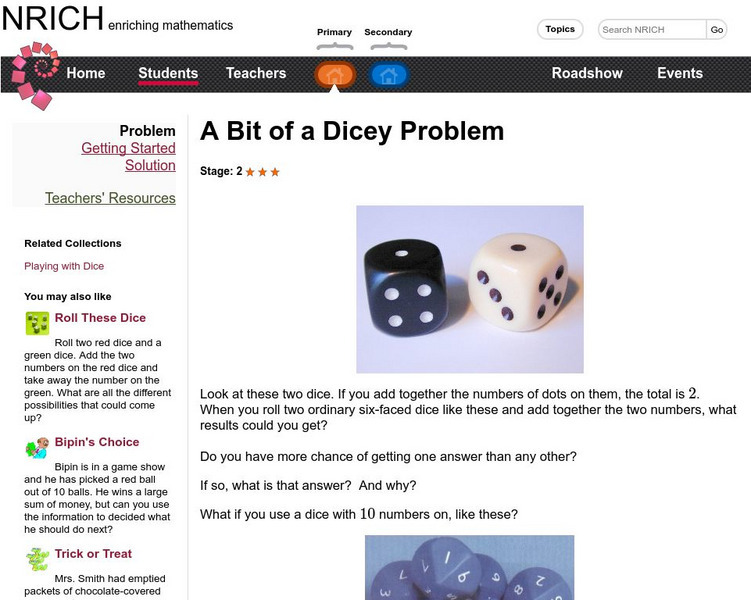Illustrative Mathematics
Illustrative Mathematics: 7.sp.8 Tetrahedral Dice
Many games use dice which are six-sided and fair (meaning each face on the die is equally likely to land face up). Many games also use the sum of two dice rolled at the same time to determine movement of game pieces. However, not all...
Texas Instruments
Texas Instruments: Probability
Students examine predictable outcomes of events such as flipping a coin or rolling a dice. They see that these events repeated many times form a pattern of distribution. They explore the probability concepts of most likely and least likely.
Illustrative Mathematics
Illustrative Mathematics: 7.sp Rolling Dice
Roll two dice 10 times. After each roll, note whether any sixes were observed and record your results in the table below. Aligns with 7.SP.C.7.
University of Texas at Austin
Mathematics Teks Toolkit: Rolling Races
Students play a game by rolling dice and determining the probability of outcomes of colors.
Shodor Education Foundation
Shodor Interactivate: Racing Game With Two Dice
Simulate a game where "N" players roll two dice, and the lucky player has an advantage for reaching the finish.
National Council of Teachers of Mathematics
Nctm: Figure This: Are Dice Fair or Not?
Is it fair or not fair? That is the question. Try this math challenge where you use your probability and number sense skills to determine whether or not a game is fair. Find out how mastering this challenge can be useful in real life...
TED Talks
Ted: Ted Ed: The Last Banana: A Thought Experiment in Probability
Imagine a game played with two players and two dice: if the biggest number rolled is one, two, three, or four, player 1 wins. If the biggest number rolled is five or six, player 2 wins. Who has the best probability of winning the game?...
US Department of Education
Nces: Kids' Zone: Chances
Dice game allows you to see how increasing or decreasing the number of dice rolls affects an outcome.
CK-12 Foundation
Ck 12: Algebra Ii: 5.1 Sample Spaces and Probability
This section explores how to determine the sample space, or possible outcomes, for an event such as rolling dice. It also investigates how to determine the probability of different outcomes occurring for an activity such as flipping a...
Texas Instruments
Texas Instruments: Hey, That's Not Fair! (Or Is It?)
In this activity, students can use the calculator to simulate the dice rolls to play two different games. They will decide if the games give each player an equally likely chance of winning. They also compute the probability of an event...
ClassFlow
Class Flow: Dice and Probability
[Free Registration/Login Required] This flipchart is designed to explore the probability of rolling certain values using the dice tool. By the end of this lesson, the students will have gathered experimental data, made hypothesis about...
Texas Instruments
Texas Instruments: Getting Started With Probability Simulations App
Explore probability theory with interactive animation that simulates the rolling of dice, tossing of coins and generating random numbers. Evaluation options include bar graphs, table of trials data, settings for specifying the number of...
Khan Academy
Khan Academy: Simple Probability
Practice finding probabilities of events, such as rolling dice, drawing marbles out of a bag, and spinning spinners. Students receive immediate feedback and have the opportunity to try questions repeatedly, watch a video or receive hints.
Texas Instruments
Texas Instruments: Probability Simulations App
This App allows students to explore probability theory with interactive animation that simulates rolling dice, tossing coins, and generating random numbers. They use evaluation options such as bar graphs and table of trials data....
California State University
Cal State San Bernardino: Intro to Probability Models
The concept of random variables comes to life with this Applet used to roll one, two, six, or nine dice. The user selects the number of rolls to be completed, and the program quickly counts and graphs the results.
University of Cambridge
University of Cambridge: Nrich: A Bit of a Dicey Problem
Short website offers a look into the theoretical probability of tossing dice. Several questions related to the throwing of dice are included.



